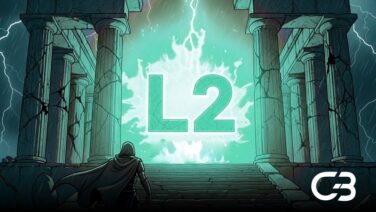- Five blockchains had exceeded 60K TPS, which itself reflects a transition to more scalable and responsive layer-1 blockchains.
- The most significant TPS growth was found in Solana and Aptos, as up to 200% of performance improvement was achieved thanks to parallel processing and new frameworks.
- The technological factors that led to the current boom in blockchain throughput were sharding, parallel computation, and consensus improvements.
Solana (SOL) is a high-quality blockchain that has been registering over 65,000 transactions per second (TPS) recently, a rate that cements its status as a high-performance layer-1 blockchain by rebuttal.
Analysts and developers note that the upsurge has been attributed to stronger validator efficiency, multitasking transactions, and strategic throughput scaling. Its recent speed acceleration reflects a remarkable 200% gain compared to last quarter. Solana’s unmatched ability to process transactions in parallel continues to differentiate it from traditional blockchains.
Injective Introduces a Revolutionary Infrastructure With 100% Speed Growth
Injective (INJ), a lesser-known but rapidly advancing protocol, has made exceptional gains in network speed. Designed specifically for decentralized finance and derivatives trading, Injective now records over 60K TPS, a figure verified by on-chain metrics. This marks a high improvement from its previous benchmarks. Analysts attribute the performance leap to optimizations in its consensus layer and the introduction of faster relayer nodes. The progress underscores its position in the blockchain speed arena.
TRON’s Unparalleled Efficiency Reflects Steady High TPS and Stability
TRON (TRX), long known for its high throughput and active daily users, continues to demonstrate superior scalability. It consistently clocks above 65,000 TPS, primarily due to its delegated proof-of-stake (DPoS) model. This structure reduces consensus friction and enhances validation speed. Recent upgrades to the TRON Virtual Machine have also resulted in a 75% increase in contract execution times, improving resource allocation and system responsiveness across its ecosystem.
Aptos Breaks Ground With a Dynamic Parallel Execution Model
Aptos (APT) is quickly emerging as a groundbreaking platform after achieving TPS levels above 60,000 through its Move-based architecture. The blockchain’s parallel execution framework, known as Block-STM, has reduced congestion and unlocked speed growth of 150%.
Aptos Labs reports that latency dropped substantially, allowing for faster settlement even under heavy load. These developments place Aptos among the most innovative and forward-moving chains in today’s evolving blockchain infrastructure.
NEAR Protocol Achieves Lucrative Gains With Nightshade Sharding
NEAR Protocol (NEAR) recently registered transaction speeds exceeding 60,000 TPS, backed by its advanced Nightshade sharding mechanism. The protocol’s focus on layer-1 scalability and dynamic sharding allowed for a 120% performance improvement quarter-over-quarter. Its architectural model decentralizes workload distribution, reducing bottlenecks while preserving security. The network’s consistent upgrades have positioned NEAR as a reliable high-throughput platform in both retail and institutional environments.









